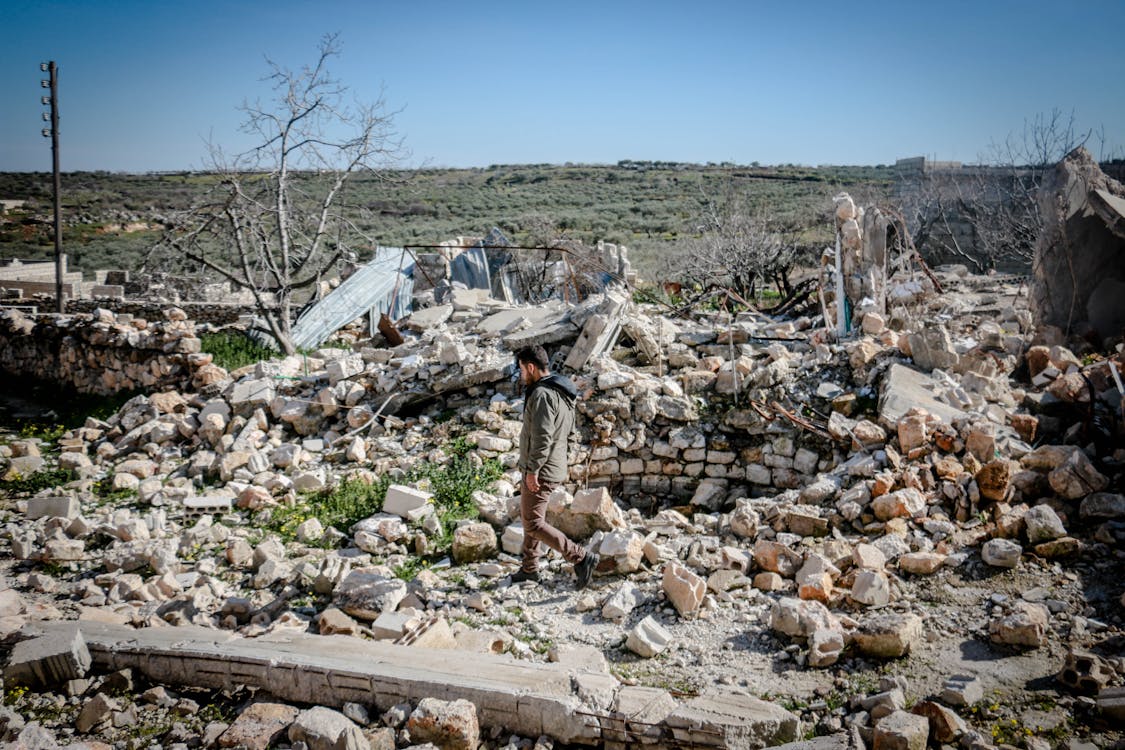Syria: The current humanitarian situation and possible EU action
Syria has been at war for 13 years. In 2011, the Syrian revolution was violently crushed by dictator Bashar al-Assad as part of the Arab Spring. Iran and Russia support the Assad regime, which is internationally ostracized for brutal human rights violations. Half a million people have already been killed, 13 million people have been displaced – more than half of them live outside Syria. The majority of Syrian refugees have fled to neighboring countries such as the Turkey (3.1 million people), Lebanon (785,000 people) and Jordan (640,000 people) found refuge. The conflict has been increasingly forgotten in recent years.
Twice displaced: The 2023 earthquake
The violent earthquake on February 6, 2023 caused the situation in the northwest of the country to deteriorate dramatically. More than 56,000 people died in Syria and Turkey and over two million people were left homeless overnight. In total, more than 22 million people were affectedincluding 9 million in Syria alone.
There is still a lack of basic supplies, shelter, electricity and access to healthcare. Most of the affected families are still living in destroyed houses or in tents. The disaster has also severely affected the mental health of many people. Many have lost family members and friends. The already precarious humanitarian situation has become even worse: more than 15 million people in Syria, including 7 million children, are in urgent need of humanitarian aid. That is five percent more than in 2022. At the same time, there is a massive lack of humanitarian aid and funding, while Assad tries to rehabilitate the reputation of his regime through aid deliveries and to end the international isolation of Syria – with success. If you would like to know more, you are welcome to visit my article from November take a look inside.
The current European policy on Syria
While the Arab League and other states such as Turkey are gradually normalizing their relations with Syria, Europe's Syria policy continues to be based on sanctions against the Assad regime and direct humanitarian support for the Syrian civilian population. The latter is supported by instruments such as the Neighborhood, Development and International Cooperation Instrument (NDICI)the MADAD Fund and the Facility for refugees in Turkey made available. As part of the revision of the Multiannual Financial Framework (MFF), i.e. the long-term EU budget until 2027, the Commission has, for example, proposed an additional 5.2 billion to support Syrian refugees in Syria, Turkey, Jordan and Lebanon. In addition, exemptions are needed for trusted international humanitarian aid organizations so that they can help quickly and effectively in Syria. We are committed to ensuring that sanctions do not hinder the provision of vital humanitarian aid, but rather target the elites and war criminals. The European Parliament's Research Service has analyzed the impact of the sanctions here analyzed.
In addition, in the Committee on Foreign Recommendation to the Council, the Commission and the European External Action Service (EEAS) on the situation in Syria agreed. In it, we once again emphasize the Assad regime's serious human rights violations and the EU's duty to refrain from any normalization with him as long as there are no profound and verifiable changes through the implementation of the Resolution 2254(2015) of the UN Security Council there. This includes the release of political prisoners, information on the fate of missing persons and victims of enforced disappearances, and an end to all attacks on and obstruction of humanitarian aid. This is particularly important because there is still a significant threat to people across the country, such as Confidential sources from the Federal Foreign Office suggest. In addition, the Fighting in Syria resumeswhich is why the United Nations is calling for a ceasefire.
Other proposals in the UN resolution include stepping up the fight against Russian and Iranian disinformation about Syria, combating the ongoing impunity in Syria and providing greater support for civil society and the democratization processes being pursued.
